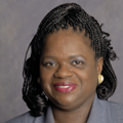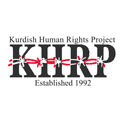2011 Gruber Justice Prize Press Release
| US Media Contact: | Foundation Contact: |
| Cassandra Oryl | Bernetia Akin |
| +1 (202) 309-2263 | +1 (340) 775-4430 |
| pr@lunchboxcity.com | media@gruberprizes.org |
| Online Newsroom: www.gruberprizes.org/news-media | FOR IMMEDIATE RELEASE |
Five Champions of Freedom to Share $500k Gruber International Justice Prize
Award Caps Decade of Distinction As Justice Prize Moves into New Era
June 29, 2011, New York, NY –This year the Gruber Justice Prize honors five recipients who among them have challenged the world’s most common forms of intolerance: racial, ethnic, religious, political, economic and gender-based. Hailing from South America, Europe, the Middle East and the United States, the honorees also underscore the sad truth that injustice knows no boundaries – and the more encouraging tenet that the quest for justice is universal.
 |  |  |  |  |
| Barbara Arnwine | Morris Dees | Association for Civil Rights in Israel | Center for Legal and Social Studies | Kurdish Human Rights Project |
Being recognized are: Barbara Arnwine of the Lawyers’ Committee for Civil Rights Under Law, for defending and promoting civil rights and gender equity throughout the U.S.; Morris Dees for his work for racial equality particularly in the Southern United States; the Association for Civil Rights in Israel (ACRI) for promoting and defending the rights of vulnerable communities in Israel and the occupied territories; the Center for Legal and Social Studies (CELS) for documenting and litigating human rights violations by the military dictatorship in Argentina; and the Kurdish Human Rights Project (KHRP) for protecting the civil and religious liberty of peoples in Kurdish regions including in Turkey, Iraq, Iran, Syria, Azerbaijan and Armenia.
The sweep of the 2011 award marks a fitting climax for the Justice Prize as the Gruber Foundation prepares to move to Yale University, where the mission of its two human rights prizes will merge and transition in 2012 into the Gruber Program for Global Justice and Women’s Rights.
Created in 2001, the Justice Prize has been awarded annually to those who, often at great personal risk, fight for the Rule of Law. “Justice redresses the arbitrary use of power by an individual or by a group,” said Peter Gruber on the occasion of the first award. The intent of the Prize has been to reward and encourage efforts supporting that struggle and over the past 10 years it has touched virtually all parts of the globe.
The 2011 award will be presented at a ceremony this fall. The five recipients who will share equally in the $500,000 unrestricted cash award are:
Barbara Arnwine – The executive director of the Lawyers’ Committee for Civil Rights Under Law since 1989, she led the effort to secure passage of what became the Civil Rights Act of 1991 and played a significant role in securing the 2006 Reauthorization of the Voting Rights Act. Under her leadership, the Committee has become a powerful force for civil rights under law and a model for other NGOs seeking justice. She was largely responsible for the 1995 Conference on African American Women and the Law, which attracted over a thousand attendees. Following thousands of complaints of racial intimidation and disenfranchisement in Florida during the 2000 presidential election, Ms. Arnwine became a leader in The Election Protection Program, which by 2008 was one of the largest pro bono programs in the nation. She supported creation of the Disaster Victims’ Assistance Project after Hurricane Katrina in 2005 and helped prevent the eviction of over 250,000 displaced families from hotels and shelters until alternative housing had been provided.
Internationally, Ms. Arnwine led an advance team of the South Africa Electoral Observers delegation in 1994. She has advocated on behalf of Haitian refugees and was involved in investigating conditions at Guantanamo Bay. She led a delegation to the UN’s 1995 Decade of Women Conference and NGO Forum in Beijing, where her efforts contributed to adoption of a platform for protecting women who face multiple forms of discrimination.
Morris Dees – Morris Dees was a founder and chief trial counsel of the Southern Poverty Law Center, an organization dedicated to fighting hate and bigotry and to seeking justice for the most vulnerable members of society. Since its founding in 1971 in Montgomery, Alabama, the Center has grown from a staff of three to a staff of 175, including 32 lawyers, and offices in five Southern states. Mr. Dees succeeded in forcing the integration of Alabama State Troopers and in the redistricting of the Alabama legislature, which enabled black voters to participate in the political process more fully. In the late 1970s, in response to an alarming increase in white supremacist activity, Mr. Dees made combating extremism one of his priorities. When a young black student was lynched by members of the Ku Klux Klan in 1981, Mr. Dees filed a civil suit on behalf of the victim’s family and named as a defendant the United Klans of America. The resulting $7 million verdict bankrupted the Klan and led to a string of lawsuits against other hate groups. To discourage young people from coming under the influence of hate groups, Mr. Dees created the Teaching Tolerance project in 1992, providing teachers with tools to help them instill in their students an appreciation of diversity and democratic values.
He has challenged the death penalty in Alabama and improved conditions in that state’s prisons and mental health facilities. Recently the Center has led a number of class actions against employers who violate the human rights of migrant workers and has issued major reports detailing the conditions faced by guest workers and other low-wage immigrants. The author of three books, Mr. Dees has been honored for both his legal work and his contributions to the field of education.
The Association for Civil Rights in Israel (ACRI) – Since its founding in 1972, the Association for Civil Rights in Israel has played a leading role in the struggle to provide human rights for all people living in Israel and the occupied territories. ACRI seeks to protect the rights of Arab citizens who do not enjoy equal access to public services and funding or full participation in the political process. It has opposed racial profiling at airports and protected freedom of expression and the right to privacy and other rights threatened due to national security concerns. ACRI seeks to ensure that the Interior Ministry enforces its policies and practices regarding citizenship and residency in a non-discriminatory manner. In East Jerusalem, the West Bank and Gaza, ACRI has challenged human rights violations against Palestinian residents, such as restrictions on freedom of movement. In the area of social and economic rights, ACRI focuses primarily on access to health services, the right to adequate housing, migrant workers’ rights and the right to education. ACRI promotes its message through public campaigns and events, a public hotline and advocacy before decision-makers.
The organization’s successes in Israeli courts cover many areas, including women’s rights and GLBT rights. It is currently challenging a law that denies a status in Israel to the Palestinian spouses of Israelis. In 2000, ACRI succeeded in its petition to the Supreme Court for recognition of the legal adoption of a child by his biological mother’s lesbian partner. In 2005, it ensured pension rights by the National Insurance Institute to surviving same-sex partners. And, in 2006, it succeeded in obligating the Interior Ministry’s Population Registry to register the marriages of same-sex couples that marry outside Israel.
Center for Legal and Social Studies (CELS) – Founded in 1979, during the military dictatorship in Argentina, the Center for Legal and Social Studies was a pioneer in the domestic application of international human rights law. With the return of democracy in 1983, CELS played a leading role in achieving accountability under law for high-ranking military officers who had committed human rights violations, including political executions, detention, torture and 30,000 cases of disappearance. The organization litigated several cases and participated in the trial of the military junta. When presidential pardons and amnesty laws subsequently undid much of what had been accomplished, CELS brought a lawsuit to oppose government measures to block the accountability process. That suit resulted in the trials of 1,700 officials being reopened.
In 2001, CELS succeeded in getting the laws protecting government officials from prosecution declared unconstitutional, a verdict that was reinforced by the legislature in 2003 and upheld by the Supreme Court in 2005. The reopening of the trials, however, revealed systemic issues that resulted in procedural delays and risks to witnesses. CELS helped to overcome some of these obstacles with a proposal that resulted in the formation of governmental units designed to coordinate the efforts of public prosecutors working on cases of human rights violations committed by the state, manage a national Witness Protection Program, analyze the risks of the trial process, and publicize the oral hearing phase of each trial and gather news about it.
Kurdish Human Rights Project (KHRP) – Founded in 1992, the Kurdish Human Rights Project is a London-based NGO committed to promoting and protecting the human rights of all persons living within Kurdish regions. It has brought cases on behalf of more than 500 applicants and has succeeded in focusing international attention on the plight of Kurds in Southeast Turkey, Syria, Iraq, Iran and, more recently, on human rights violations against Kurds in Armenia and Azerbaijan. Through its work with the UN and in the European Court of Human Rights, KHRP has helped achieve important reforms both in the countries concerned and at the Court itself. In a 1996 case, for the first time, the Court ruled that Turkish authorities must allow oral courtroom testimony to be given in Kurdish. In 2001 KHRP and partner organizations were able to halt a project in southeast Turkey that would have displaced up to 78,000 people in Kurdish communities and caused conflict over water with Iraq and Syria. In 2003, KHRP’s arguments against the death penalty before the European Court of Human Rights resulted in a landmark judgment toward the abolition of capital punishment.
KHRP trial observers serve as a visible reminder that the international community has an interest in seeing domestic legal practice comply with international law. Trial observations and reports from fact-finding missions keep human rights violations in the spotlight for international lawyers, policymakers and human rights advocates. The organization attributes much of its success to its practice of conducting fact-finding missions in a part of the world where information on human rights violations is not otherwise readily available. It publishes in-depth studies and briefing papers that are an important resource for governmental and non-governmental bodies throughout Europe and the world. KHRP has used regional cases to help establish important precedents internationally, including the abolition of the death penalty and having rape recognized as a form of torture.
A complete biography/organizational profile for each of the recipients is available at: http://www.gruberprizes.org.
In addition to the cash award, recipients receive a gold medal and a citation, which reads:
The 2011 Justice Prize of The Peter and Patricia Gruber Foundation is proudly presented to five recipients for extraordinary contributions over many years to human rights and the rule of law.
For over 35 years, Barbara Arnwine has promoted equal justice for disadvantaged groups both domestically and internationally.
For more than 40 years, Morris Dees has battled the many faces of injustice in defense of vulnerable groups. Through the Southern Poverty Law Center, he has been a courageous voice for justice.
For over 38 years the Association for Civil Rights in Israel has promoted and defended the rights of vulnerable communities in Israel and the occupied territories. It has been a courageous voice for the human rights of all.
For more than 30 years the Center for Legal and Social Studies has worked to eradicate human rights abuses in Argentina. It has labored to defend the legal rights of the vulnerable and to protect the human rights of all through the law.
For over 17 years, the Kurdish Human Rights Project has, both in the world and before the European Court of Human Rights, promoted and protected the human rights of all who live in the Kurdish regions.
Additional Information
Members of the committee that selected the 2011 Justice Prize recipients are:
Carmen Maria Argibay, Supreme Court of Argentina; Arthur Chaskalson, Constitutional Court of South Africa (Ret.); Param Cumaraswamy, Barrister-at-law, Inner Temple, London and Advocate and Solicitor, Kuala Lumpur; Bernice Donald, U.S. District Court, Western District of Tennessee; Michael Kirby, High Court of Australia (Ret.); Robert Kushen, European Roma Rights Centre; Ramón Mullerat, KPMG Abogados, S. L.
Laureates of the Gruber Justice Prize:
- 2010: Michael Kirby, retired Australian High Court justice who used international law to protect human rights; John Dugard, attorney who helped bring South Africa into the post-apartheid era; and the Indian Law Resource Center, which champions the interests of indigenous peoples in the Americas.
- 2009: Bryan Stevenson, advocate for marginalized inmates in the U.S. legal system, and the European Roma Rights Centre, proponent of Romani rights.
- 2008: Judge Thomas Buergenthal, Inter-American Court of Human Rights, and Jerome J. Shestack, former president of the American Bar Association, advocates for racial and gender equality and human rights.
- 2007: Judge Carmen Argibay of Argentina, Judge Carlos Cerda of Chile, and Mónica Feria of Peru, for human rights work locally and internationally.
- 2006: Aharon Barak, retired President of the Supreme Court of Israel, renowned for championing an activist judiciary and the rule of law and democracy.
- 2005: Malaysian attorney Dató Param Cumaraswamy who, at considerable risk to himself, stood up for the independence of the judiciary.
- 2004: Chief Justice Arthur Chaskalson and then-Deputy Chief Justice Pius Langa, for helping to establish South Africa’s Constitution as a model for modern democratic societies.
- 2003: Madame Justice Rosalie Silberman Abella and Madame Justice Bertha Wilson of Canada’s Supreme Court, for upholding the rights of women and minorities.
- 2002: Fali Sam Nariman, Member of the Parliament of India and Senior Advocate in the Supreme Court, for helping establish the rule of law in India.
- 2001: Anthony Gubbay, former Chief Justice of Zimbabwe, and the Law Society of Zimbabwe for upholding the independence of the judiciary
* * *
The Gruber International Prize Program honors contemporary individuals in the fields of Cosmology, Genetics, Neuroscience, Justice and Women’s Rights, whose groundbreaking work provides new models that inspire and enable fundamental shifts in knowledge and culture. The Selection Advisory Boards choose individuals whose contributions in their respective fields advance our knowledge, potentially have a profound impact on our lives, and, in the case of the Justice and Women’s Rights Prizes, demonstrate courage and commitment in the face of significant obstacles. The Peter and Patricia Gruber Foundation honors and encourages educational excellence, social justice and scientific achievements that better the human condition.
In the spring of 2011, Yale University and The Peter and Patricia Gruber Foundation signed an agreement that established the Gruber Foundation at Yale, which will carry on its philanthropic mission. For complete details, see the press release at Gruber Foundation at Yale.
For more information on the Gruber Prizes please visit www.gruberprizes.org. Additional media materials are available on our online newsroom at www.gruberprizes.org/news-media. Or contact the individuals listed at the top of this release. Follow the Gruber Foundation on Facebook: http://www.facebook.com/GruberPrizes.






